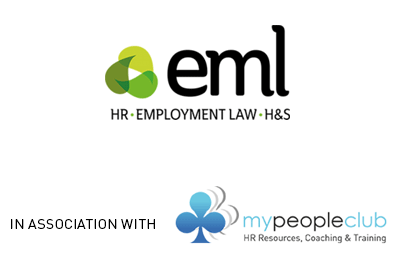
Employment Law Update – It can be difficult to keep one step ahead of changes in Employment Law. In this article we take a brief look at some recent case law decisions and the key legislative changes on the horizon for 2020.
Is it necessary to have an Investigation Meeting with an employee before requiring them to attend a Disciplinary Hearing?
In the case of Sunshine Hotel v Goddard the Employment Appeal Tribunal held that a separate investigation meeting isn’t always necessary. To comply with the ACAS code of conduct on Discipline and Grievance, the employer must carry out as much investigation as is reasonable in the circumstances before taking disciplinary action, which may in some cases necessitate a separate investigatory meeting prior to holding a full disciplinary hearing, but in others may only require the collation of evidence to be used in the disciplinary hearing.
Employers should, however, be cautious before dispensing with the investigation meeting. In particular, where the allegations are complex or the employee’s actions open to interpretation, it is unlikely to be reasonable to proceed without one. Collective agreements or the company’s own disciplinary process may also call for a separate investigation meeting in which case deviating from such procedure would carry significant risk.
Ethical Veganism
In the widely publicised case of Casamitjana v The League Against Cruel Sports an Employment Tribunal ruled that ethical veganism is a philosophical belief that is protected by law against discrimination and as such benefits from the protection of the Equality Act 2010. Ethical vegans differ from dietary vegans as they not only eat a plant-based diet, but also try to avoid using products derived from any form of animal exploitation such as not wearing clothing made of leather or wool and not using products tested on animals.
Whilst a landmark decision in many respects, it is not at appeal level, and is therefore not binding on other courts. Another Employment Tribunal would still be free to make a different decision subject to the guidance set out in case law and within the explanatory note of the Equality Act 2010 for determining what constitutes a philosophical belief. The does however help to demonstrate just how wide the definition of “philosophical belief” can reach.
Holiday Pay Calculations and Statements of Employment Particulars
From April 2020 the statutory reference period for calculating holiday pay will increase from 12 to 52 weeks. At the same time all workers (not just employees) will be entitled to a statement of written particulars from day one of their employment. In addition to the information that must currently be provided within two months of the start of employment, the statement will also need to include particulars of the days of the week the worker is required to work, whether or not such hours are variable (and if they are, how they vary and how the variation is to be determined), any terms and conditions relating to any other paid leave (in addition to the details of holiday leave and sick leave which are already required) , the duration and conditions of any probationary period and details of any training entitlement provided.
Executive Pay Ratio Reports
2019 saw the introduction of Executive Pay Ratio reporting regulations which require UK listed companies with more than 250 UK employees to report annually on the pay gap between their chief executive and their average UK worker. The first reports are due in 2020.
IR35 Rules
From 6 April 2020 changes to IR35 tax rules aimed at reducing tax avoidance for off-payroll contractors working through personal service companies (PSCs) will mean that private sector businesses who meet the criteria relating to turnover, balance sheet and employee numbers will assume responsibility for assessing the employment status (for tax purposes) of the off-payroll workers they engage. Where such workers would be considered an employee if directly engaged by the business, rather than through a PSC, the business will be responsible for payment of their tax and national insurance contributions.
Now on hold for at least a year as of March 2020.
Parental Bereavement Leave
The Parental Bereavement Leave and Pay Act 2018 is expected to come into force in 2020 giving all employed parents the right to 2 weeks’ paid leave if they lose a child under the age of 18 or suffer a stillbirth from 24 weeks of pregnancy.
If you have any queries in relation to the above, or any other aspect of Employment Law, don’t hesitate to contact any of our team.
Thank you for reading: Employment Law Update
For more updates like MyPeopleClub Employment Law Update from EML. Go to our Employment Law Updates page

